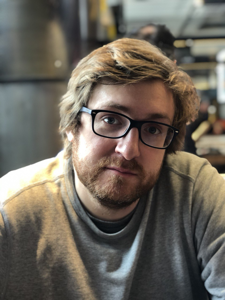
Max Seddon
Financial Times
Max Seddin’s work documented Russia’s descent into darkness to produce ground-breaking reporting on the invasion of Ukraine.
Max reported from Moscow, lavish seaside resorts from the Baltic to the Persian Gulf, and the rarified lairs of the Russian elite, to unpack Putin’s decision to go to war – a war almost none of his own top officials knew he was planning until they saw him announce it on television.
Foreign minister Sergei Lavrov was one of the few to get any advance warning, thanks to a 1am phone call the night before. Asked to explain the shocking news to a room full of panicked oligarchs, Lavrov said Putin had “three advisers: Ivan The Terrible. Peter the Great. And Catherine the Great.”
Putin’s imperial delusions, however, aren’t the only thing fuelling Russia’s invasion. His second piece, written with colleague Polina Ivanova, investigates the technocrats who proved crucial enablers of Putin’s war.
In a confidential presentation obtained by Max, Russia’s top technocrats had warned Putin a month before the invasion that war with Ukraine would spell economic disaster. But when Putin asked them what he should do, the bankers and officials failed to summon the courage to implore him not to invade.
These technocrats were horrified by the war. Instead of voicing their objections publicly, however, they remained in their posts and worked to keep Russia’s economy afloat.
Initially terrified of the consequences for opposing Putin’s war, many of them came to see their jobs as a patriotic duty, and came to accept their new roles as enablers.
One article describes life in the gilded hell of Moscow, gathered while reporting the first two pieces from boardrooms, upscale restaurants, and hip coffee shops where ignoring the war was easy.
The piece explores that bizarre dynamic: how being able to pretend Putin’s invasion doesn’t affect you has helped make the war possible. Privately, Max’s sources and friends alike cursed Putin’s war, ruing the way it has ended life for them as they knew it.
But the surreality of Moscow has helped them try to go on as before regardless, imbibing the regime’s logic along the way.
Some have sunk into various forms of casual debauchery. Others have embraced extreme asceticism or the “internal emigration” marked by the books about Nazi Germany suddenly topping bestseller lists.